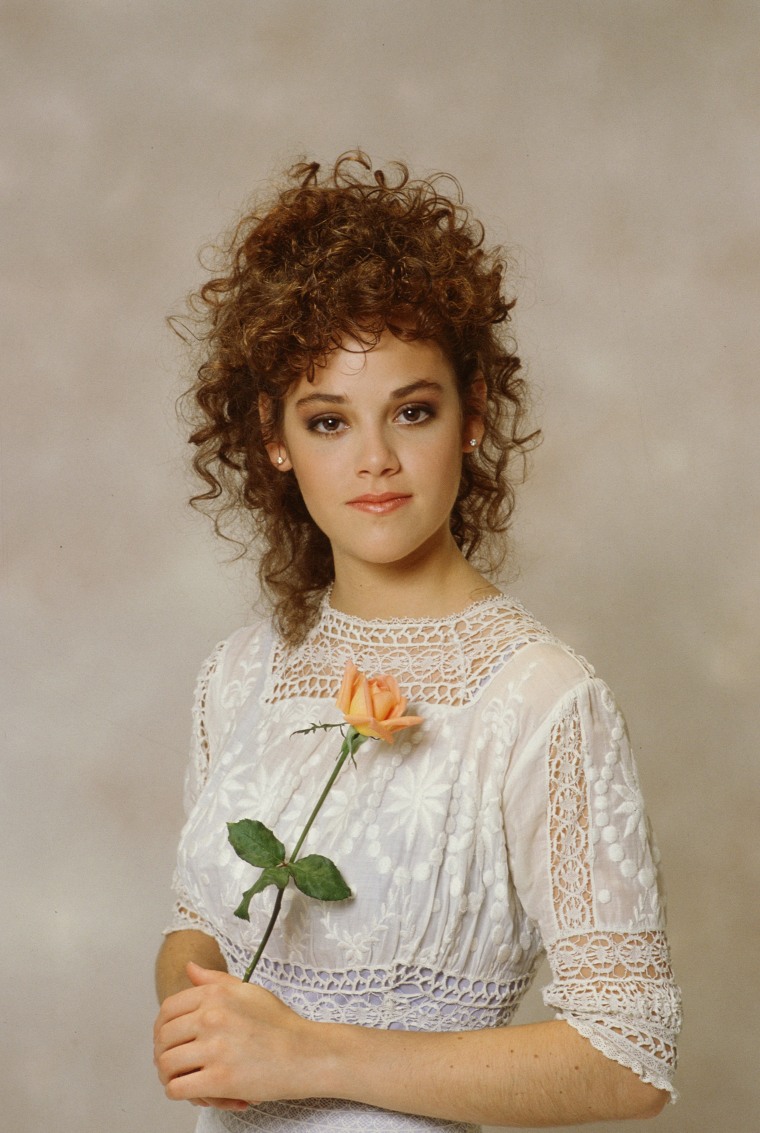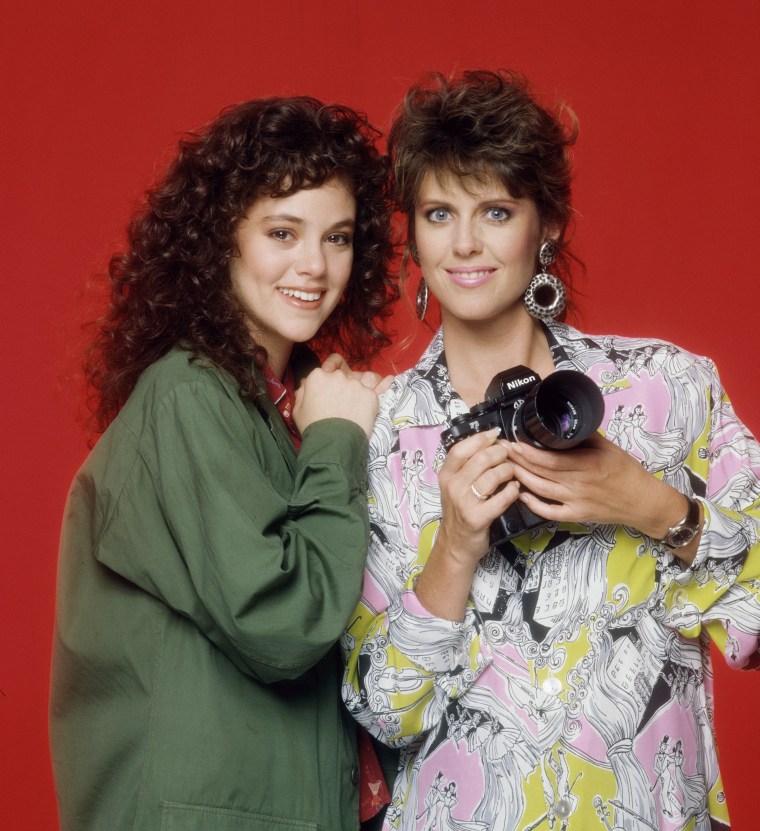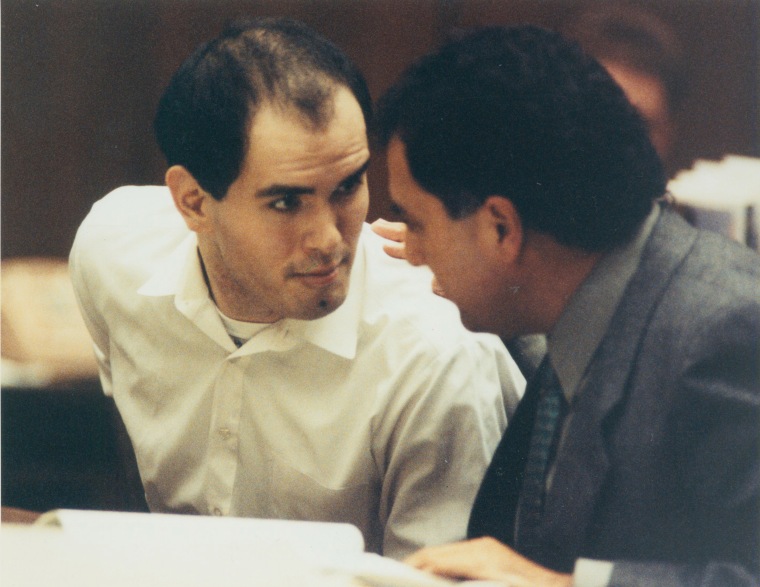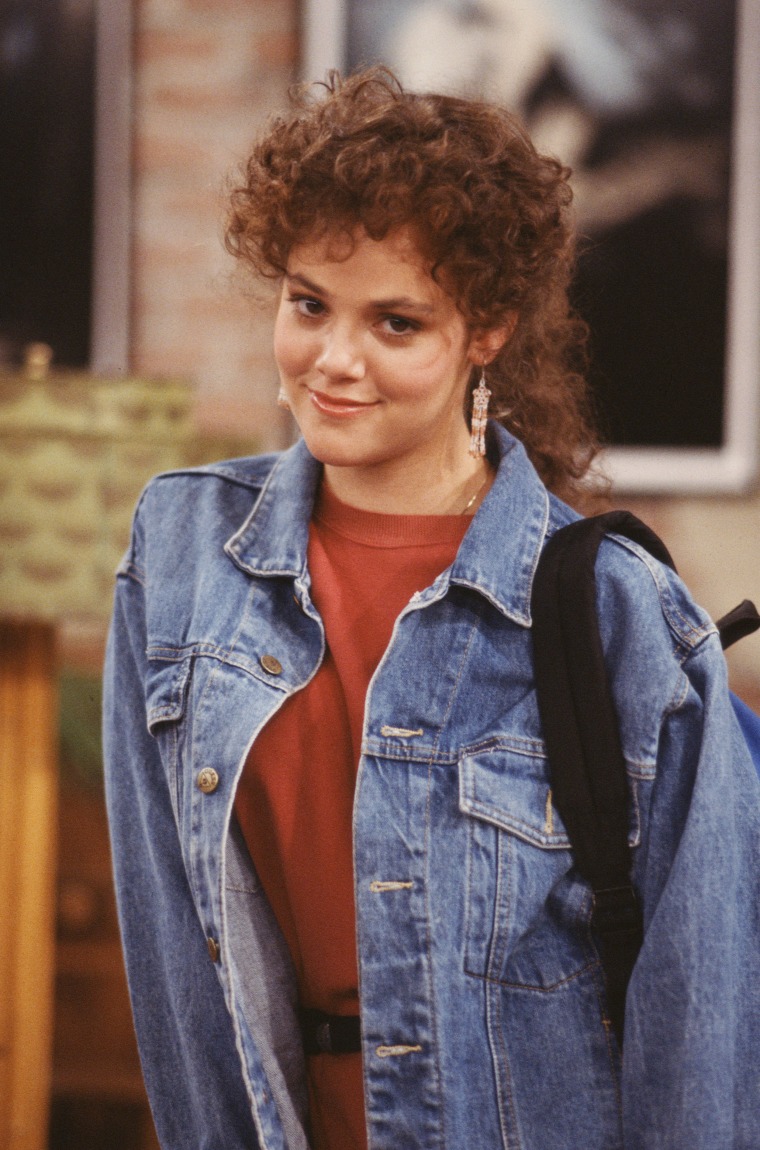All week long, TODAY is marking the 30th anniversary of the summer of 1989 with a look back at some of the notable (and not-so-notable) people, milestones and moments from that wild and crazy time.
Everyone remembers O.J. Simpson and what became known as the “trial of the century.” But it was a different crime, six years earlier, that would change Hollywood forever.
On July 18, 1989, Rebecca Schaeffer, a rising young TV actress who had starred on the CBS comedy “My Sister Sam,” was at her Los Angeles home preparing to audition for a role in Francis Ford Coppola’s “The Godfather Part III.”
It would have been the role of her career. But she never got the chance.

When her doorbell rang that day, it wasn’t the “Godfather” script she had been expecting for delivery. Instead, it was a man she didn’t recognize, claiming to be her biggest fan and carrying an autographed photo of her.
After a short conversation, Schaeffer closed the door, and the man left.
A short while later he returned. When the actress opened the door, he shot her point-blank with a .357-caliber handgun and then fled. Schaeffer, who was 21, died at the hospital.
The shooter, Robert John Bardo, was arrested the next day wandering a highway in Tucson, Arizona, according to reports at the time. Her murder was not a random crime. Bardo was a stalker who’d become obsessed with the young actress during “My Sister Sam’s” two-season run.

He’d sent her streams of fan letters and gifts, and tried to meet her at a studio where she worked. He eventually tracked her down with the help of a private investigator.
“This sent a shockwave through Hollywood,” David Robb, a veteran Hollywood journalist who covered the story for Variety, told TODAY. “It was pretty clear (Bardo) was mentally disturbed. It raised the very real issue that the privacy and safety of celebrities (were) at risk, even in their homes.”
In 1991, Bardo was sentenced to life in prison without the possibility of parole. Today, he is serving his sentence at Avenal State Prison in California.
The case, marrying the subjects of celebrity, stalking and gun control, was not the first of its kind.
John Lennon’s 1980 murder in front of his New York City home was carried out by an obsessed fan, Mark David Chapman. Ronald Reagan’s attempted assassin, John Hinckley Jr., was fixated on the actress Jodie Foster, and he shot the president as a "love offering" to her, as he later put it in a letter to The New York Times. (Like Hinckley and Chapman, Bardo had a mysterious connection to the novel “The Catcher in the Rye" and carried it with him during his attack.)
In a lesser known case, in 1982, actress Theresa Saldana survived a knife attack by a crazed fan in front of her Hollywood home, an ambush with grim similarities to Schaeffer’s.
What set Schaeffer’s murder apart, though, was how it offered a glimpse at the way the worlds of fame and criminal justice would intersect over the next decade.

In fact, Bardo would be prosecuted by the same lawyer who would become a fixture on TV while prosecuting O.J. Simpson years later: Marcia Clark.
In addition, Schaeffer’s murder acted as a blueprint for the media’s coverage of crime.
Patrick Healy, a journalist at NBC Los Angeles who covered the case, recalls the Bardo trial was among the first cases to attract the attention of a “new breed” of nightly TV magazine programs, like “A Current Affair” and “Hard Copy.”
“The Bardo trial became a trial run, so to speak, for the synthesis of justice and celebrity, and foreshadowed what was to come with later high-profile trials of music producer Phil Spector and actor Robert Blake,” Healy said.

One of the more astonishing aspects of Schaeffer’s murder is how easy it was for Bardo to find her. He’d hired a private detective in Arizona, who got her address through the Department of Motor Vehicles.
“It hit home to everyone who drives a car that the person you inadvertently cut off and upset could jot down your license plate number, go to the DMV, get your address, and be waiting with a gun or a knife (outside your house),” Healy said.
“Nowadays, it is hard to imagine a performer who has co-starred in a network TV series coming to her front door to open the door to a stranger,” he added.
In reaction to the murder, the Screen Actors Guild, Hollywood’s labor union, took up the mantle of protecting its actors and actresses by lobbying California to change its privacy laws.
“This is one of the first examples of Hollywood becoming aware of gun violence and really taking the lead in trying to get sensible safety laws,” Robb said.
Eventually, California restricted public access to private information like home addresses through the DMV. New laws that made stalking a serious crime were adopted by other states. Those laws can be applied in non-celebrity cases, too, such as in cases of jealous ex-lovers.
Celebrity stalking remains a dangerous problem. In June, a 38-year-old man accused of stalking supermodel and reality TV star Kendall Jenner was deported to Canada. In March, a man who repeatedly tormented pop star Taylor Swift was busted breaking into her New York City home for the second time.
But if there’s a legacy of Rebecca Schaeffer’s murder 30 years later, it’s that stars and other public figures are better protected.
“It was wake-up call. I think the general public was shocked that a young girl would be killed by a lunatic,” Robb said. “People realized if a young star could be murdered, anybody could be murdered.”


